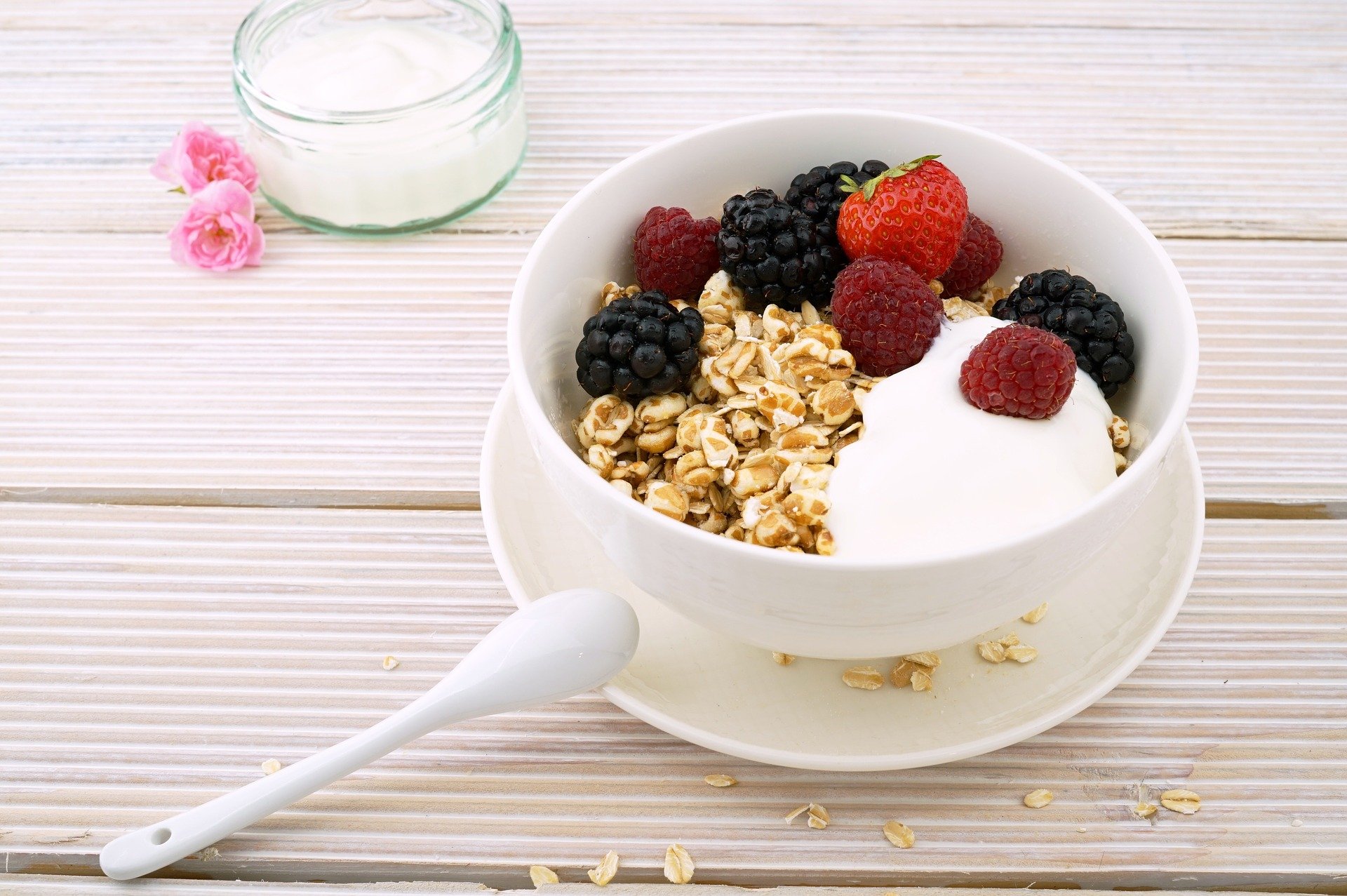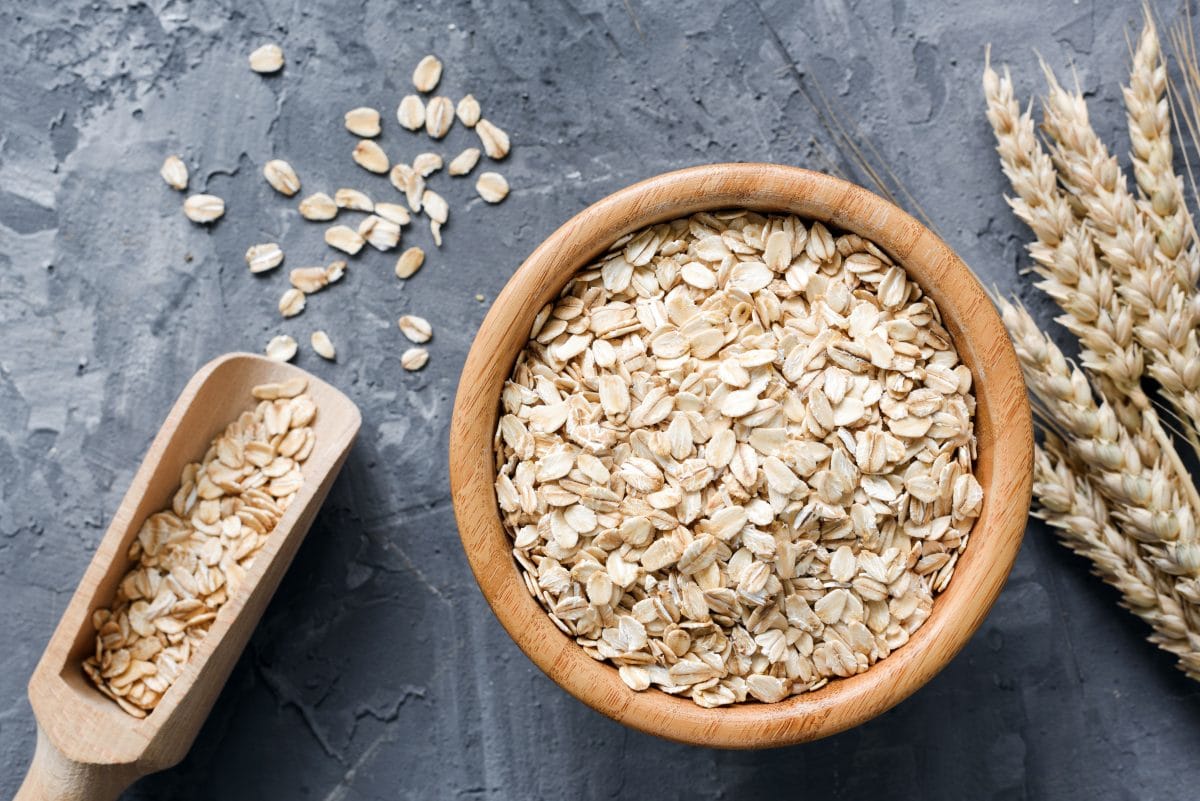Coeliac Disease, Oats & Avenin – to eat or not?
- Dietary Advice (non Low FODMAP)
Introduction
Including oats in the diet can benefit heart health, blood sugar control, and digestive health as they are rich in dietary fibre, promoting regular bowel movements and aiding overall gut health.
But are they safe for people with celiac disease?
This blog will discuss the connection between celiac disease, oats, and avenin, exploring the safety and implications of oats consumption for individuals with celiac disease.

Can you eat oats if you have celiac disease?
Some research has been conducted to assess the safety of oats for celiac patients.
Oats do not inherently contain gluten but may be contaminated during production. Therefore, choosing oats certified as gluten-free is essential to prevent immune reactions.
Uncontaminated oats that test at 20 parts per million (ppm) gluten or less may be labeled ‘gluten-free’’ in many countries internationally, such as the United Kingdom (1)
However, some countries, such as Australia, have stricter guidelines, where ‘gluten-free’ foods must not contain any detectable gluten and no oats or their products.
Many long-term cohort studies have shown that oat consumption is generally safe for people with celiac disease (2, 3, 4, 5, 6)
However, there have been some suggestions that small subsets of people with celiac disease may be triggered by another protein in oats: avenin.
What is avenin?
Avenin is a protein in oats, representing a minor fraction of the grain’s total protein content. While it is structurally similar to gluten, it is not the same as gluten.
This has sparked debates on whether individuals with celiac disease can consume avenin.
Avenin will be present in any food that contains oats, including some:
- Cereal
- Cereal bars
- Bread
- Cakes
- Oat flour blends
If you are sensitive to avenin, choosing gluten-free oats will not help – these still contain avenin.
What does the science say about avenin?
Despite good clinical evidence that celiac patients tolerate oats well, there is still debate about including oats in the gluten-free diet.
One study found that 53% of people with celiac had some gastrointestinal symptoms (bloating, flatulence, diarrhea) after eating uncontaminated oats (7).
However, this is predominantly thought to be related to the increased fiber content, as only 8% had an increased immune response when their blood was tested.
One study found that avenin didn’t induce an immune response in celiac cells (8). However, like many studies in the area, it was done in a test tube and not a human.
The results do not necessarily translate to the human body, so it is weak evidence.
Rigorous double-blind, placebo-controlled, randomized controlled trials using commonly available oats sourced from different regions are needed.
How do you know if you are sensitive to avenin?
The only way to know whether you are sensitive to avenin is by closely monitoring your symptoms after incorporating gluten-free oats into your diet.
This could be backed up by biomarker testing or biopsy to identify immune reactions and assess the extent of intestinal damage, if any.
The recommendations in the UK suggest including oats in your diet and then trying to remove them if symptoms and inflammation persist (9).
This is because oats offer a range of health benefits, are an easy go-to option for people with celiac disease, and only a few have adverse reactions to them.
If you were to react to avenin, common symptoms of avenin sensitivity may include the typical symptoms of untreated celiac disease, such as:
- Diarrhea,
- Abdominal pain
- Weight loss
- Fatigue
- Anemia
- Skin rashes
At this point, your healthcare provider may suggest you cut out oats again. However, this is only the case in a tiny proportion of people with celiac disease.
What are the benefits of including oats in your diet?
Oats are relatively inexpensive and can be used in various dishes. Including oats in your diet can also offer numerous health benefits due to their rich nutritional profile.
Oats are a good source of essential vitamins and minerals, including:
- Manganese
- Phosphorus
- Magnesium
- Iron
- B-vitamins, such as thiamine and pantothenic acid
Also, oats are rich in fibre, which has been shown to have a variety of health benefits, including (10) :
- Help lower cholesterol levels
- Supporting healthy digestion and regular bowel movements.
- Blood sugar regulation
- Weight management – Fibre promotes the feeling of fullness and satiety, which can aid in weight management by reducing overall calorie intake.
The guidelines suggest meeting 30g of fibre daily (11); however, most people do not achieve this. You can get some top tips for how to get 30g fibre a day in our blog.

What is celiac disease?
Celiac disease is a chronic autoimmune disorder. When people with celiac disease consume gluten (in wheat, barley, and rye), their immune system triggers an inflammatory response.
This immune reaction damages the lining of the small intestine, specifically the villi, which are responsible for absorbing nutrients from food.
Untreated or undiagnosed celiac disease can seriously affect an individual’s health. Chronic inflammation in the small intestine can lead to the malabsorption of essential nutrients.
This can result in vitamin and mineral deficiencies, leading to anemia, osteoporosis, and impaired growth in children (12).
Also, adhering to a strict gluten-free diet (the only current treatment for celiac disease) can be challenging and may cause stress, anxiety, and isolation (13).
Summary
While most celiac patients can tolerate pure, uncontaminated oats, a small subset may exhibit sensitivity to avenin.
Rigorous research and clinical trials are still needed to determine the impact of avenin on celiac patients definitively.
Monitoring symptoms is essential for identifying avenin sensitivity, and healthcare professionals may suggest cutting out oats if adverse reactions occur.
Nevertheless, certified gluten-free oats can offer numerous health benefits for most individuals with celiac disease due to their rich nutritional profile and fiber content.